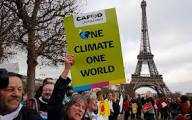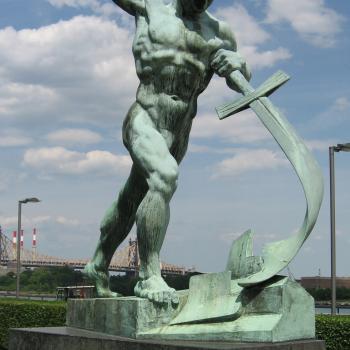 U.S. President Donald Trump ran his election campaign with the slogan, “Make America Great Again.” Yes, we needed to help a lot of people, mostly in the Midwest and Northeast. They were out of work or not making enough money because of a downturn in the economy relative to their job qualifications. The world is changing, and some people need to change with it in order to make a living. Perhaps there needs to be more re-education and training that the federal government subsidizes.
U.S. President Donald Trump ran his election campaign with the slogan, “Make America Great Again.” Yes, we needed to help a lot of people, mostly in the Midwest and Northeast. They were out of work or not making enough money because of a downturn in the economy relative to their job qualifications. The world is changing, and some people need to change with it in order to make a living. Perhaps there needs to be more re-education and training that the federal government subsidizes.
I think President Trump’s announcement to withdraw the U.S. from the Paris Climate Accord was a mistake in several ways. It is due partly to his narcissist ic selfishness and shortsightedness. He thinks it is in the best interest of the U.S. to withdraw. But it will hurt our relationship with the world, which in the long run could hurt U.S. citizens economically even more. Some 95 nations are in the accord, and the U.S. joined only civil-war torn Syria and Nicaragua in withdrawing. That in itself is a pity. It angered our most trusted allies in Europe, especially Germany and France.
ic selfishness and shortsightedness. He thinks it is in the best interest of the U.S. to withdraw. But it will hurt our relationship with the world, which in the long run could hurt U.S. citizens economically even more. Some 95 nations are in the accord, and the U.S. joined only civil-war torn Syria and Nicaragua in withdrawing. That in itself is a pity. It angered our most trusted allies in Europe, especially Germany and France.
Trump brags about being a great negotiator. He said the Paris Climate Accord was bad for the U.S. and that he is willing to renegotiate it to get a better deal for the U.S. The thing that Trump avoids saying is anything about U.S. history of polluting the earth’s atmosphere. Scientists tell us that made-made global warming began with the Industrial Revolution, which the U.S. led. So, the biggest polluter of earth’s atmosphere since this global warming began, due mostly to the burning of fossil fuels, has been the U.S. per capita of population. Per country, China recently surpassed the U.S. to become the biggest polluter of earth’s atmosphere, with the U.S. remaining in second place. Thinking only of the U.S., like Trump does, is selfish because it’s unfair to other people in the world who will suffer from our failure to be good custodians of this planet.
Carbon emissions don’t leave our atmosphere and go into space. Rather, they stay here, pollute the air, raise its temperature, and even raise temperatures of oceans, which increases their volume, causes sea levels to rise. That is why the Paris Climate Accord requires the industrial U.S. to now reduce its carbon footprint more than it does for China, which is still a developing nation and therefore doesn’t have decades of history of air pollution that reaches back over 100 years ago.
Trump won’t agree to anything that will hurt jobs in the U.S., such as coal mining jobs. That’s selfish when you consider we have been the biggest polluter for generations and that continuing human-induces global warming is going to seriously hurt a lot of people in other countries in the world. Besides, there are only about 61,000 coal miners in the U.S.
The U.S. has been the leader in transferring to a renewable-fuel economy, which will still take several decades to fully accomplish. The State of California, the seventh largest economy in the world, has about the worst air pollution problem in the U.S. due mostly to its many gasoline automobiles and electrical generation plants. Yet California is the leader of this transfer in the world, and it is not hurting jobs. Just the opposite, California is also the leader in the fledging renewable energy industry. After Trump made his announcement to pull out of the accord, California Governor Jerry Brown went on television and delivered what I thought was very convincing speech that condemned Trump’s decision and insisted renewable energy is the future.
Some Republican billionaires in the oil and gas industry have been spending big bucks lobbying Congress and advertising on television to abolish former U.S. President Barak Obama’s Clean Power Plan and get the U.S. out of the Paris accord. Most prominent proponents of these activities are the Kansas-based Charles and David Koch brothers. Their oil and gas Koch Industries is the second largest privately owned company in the U.S.
In 2008, Koch Industries funded a political lobbying group called Americans for Prosperity. It drafted a pledge called “No Climate Tax” which read, “I will oppose any legislation relating to climate change that includes a net increase in government revenue.” By the time of the federal election in 2010, this group had gotten 165 members of Congress and candidates to sign this pledge. The result was that Congress soon rejected a cap-and-trade energy tax bill that would have reduced air pollution.
It is unfair for Republican Mitch McConnell of Kentucky to represent all Americans as the majority leader of the Senate, yet advocate abolishing the Clean Power Plan and withdrawal from the Paris accord because Kentucky is one of the main coal-producing states in the U.S. But then, that’s American politics. Kentucky will never suffer from a rise in sea levels due to global warming, but South Florida already is, and it will only get worse for those Floridians. The rest of American citizens eventually will have to step up and subsidize Florida’s loss. Saving 61,000 coal jobs in time may not compare to that loss alone.
Right before President Trump attended the climate change meeting in Paris where he made his announcement to withdraw from the accord, many of the CEOs of our largest U.S. corporations spoke out publicly, trying to convince the president not to do it. They even included the CEOs of Exxon Mobil and Shell. The president’s own Secretary of State, Rex Tillerson, who just resigned as CEO of Exxon Mobil to take that job, was for the accord. Other CEOs included those of Google, Microsoft, Facebook, Amazon, Disney, General Electric, Goldman Sachs, IBM, Tesla, Twitter, and Salesforce. But on this subject the president listens mostly to his chief strategist Steve Bannon and EPA head Scott Pruitt, two guys who haven’t done that much in life. That’s a shame.
President Trump also wants to significantly reduce U.S. foreign aid. More of the same. I suspect, as do a lot of Americans, that Mr. Trump hasn’t made public his income tax returns partly because they would reveal he hasn’t given much to charity compared to his wealth. If so, again, he wants to make the U.S. selfish like him.
The most apocalyptic book in the Bible is it’s last book, the book of Revelation. It says at the end of this present age, Jesus will return, bringing with him his kingdom from heaven (Revelation 11. 11-21). John the Revelator says to God concerning that time, “The nations raged, but your wrath has come, and the time for judging the dead, for rewarding your servants, the prophets and saints and all who fear your name, both small and great, and for destroying those who destroy the earth” (Revelation 11.18).













